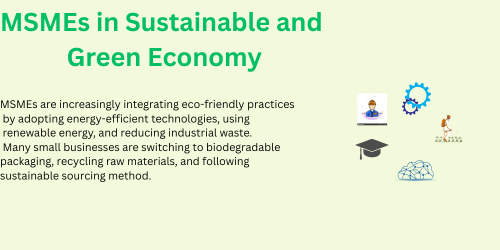MSME Loan and Grant Guide in India MSME Loan and Grant Guide in India offers a comprehensive overview of funding opportunities designed to empower small and medium enterprises. MSME Loan and Grant Guide in India helps entrepreneurs identify suitable government-backed schemes for starting or expanding their business. MSME Loan and Grant Guide in India explains eligibility requirements, step-by-step application processes, and required documentation. MSME Loan and Grant Guide in India is a valuable resource for understanding both traditional and alternative financing options. MSME Loan and Grant Guide in India ensures that business owners can avoid debt traps, scams, and misleading loan terms. MSME Loan and Grant Guide in India simplifies complex procedures and brings clarity to the financial support available across sectors. MSME Loan and Grant Guide in India enables startups and growing businesses to access funding without needing heavy collateral. MSME Loan and Grant Guide in India is tailored to help enterprises make informed financial decisions and achieve sustainable growth. What are the most accessible loan options for MSMEs in India, and how can entrepreneurs qualify? India offers several government-backed and bank-facilitated loan schemes tailored for MSMEs to improve financial inclusion and support entrepreneurship. The most accessible among them are MUDRA loans (under Pradhan Mantri MUDRA Yojana), which offer funding up to ₹10 lakh for micro-enterprises; Stand-Up India, which targets SC/ST and women entrepreneurs with loans between ₹10 lakh and ₹1 crore; and PMEGP (Prime Minister’s Employment Generation Programme), which combines subsidies with bank credit for setting up new enterprises. Additionally, CGTMSE (Credit Guarantee Fund Trust for Micro and Small Enterprises) offers collateral-free loans with a credit guarantee for up to ₹2 crore. To qualify, entrepreneurs must register under Udyam, have a viable business plan, maintain good creditworthiness, and provide necessary documents such as financial statements, identity/address proof, and project reports. Banks assess the borrower’s ability to repay through a combination of financial history, turnover, and sector potential. Newer fintech lenders have also eased accessibility by using alternative credit scoring, which benefits small and informal enterprises. How can MSMEs identify and apply for grants tailored to their industry or business stage? MSMEs can access grants by actively exploring resources from both central and state governments, as well as industry-specific bodies. Government portals like MSME Samarth, Startup India, SIDBI, and Atal Innovation Mission list various schemes designed for different sectors such as manufacturing, IT, agriculture, and green technology. Grants may target different stages of business development—startup, growth, or expansion. MSMEs should monitor these platforms regularly or subscribe to newsletters from industry associations to stay informed. Once a relevant grant is identified, MSMEs must assess the eligibility criteria, which could include Udyam registration, minimum turnover, employment targets, or innovation potential. Application processes often involve submitting detailed business proposals, audited financial statements, income tax returns, and sometimes video pitches or proof of concept. Many businesses also benefit from hiring grant consultants or working with local incubation centers that provide assistance with proposal writing, documentation, and follow-up. Keeping all compliance and tax filings up to date enhances the chances of grant approval and demonstrates operational transparency. What documents and financial records do lenders typically require for MSME funding approval? Lenders—whether banks, NBFCs, or fintech companies—follow a fairly standardized checklist when evaluating loan applications from MSMEs. Core requirements include KYC documents for promoters and the enterprise (Aadhaar, PAN, passport-sized photographs), business proof (Udyam certificate, shop establishment license, GST registration), and bank statements for the past 6–12 months to assess cash flow and financial discipline. For higher-value loans, especially above ₹10 lakh, lenders typically require audited financials—balance sheet, profit and loss account, and income tax returns for the past 2–3 years. In addition, applicants must submit a detailed project report or business plan, outlining loan usage, market potential, and revenue model. Ownership documents or lease agreements for business premises and machinery, if any, may also be needed. Some institutions may ask for collateral documents unless the loan is under a credit guarantee scheme like CGTMSE. A strong credit score (CIBIL score) and financial transparency improve the chances of approval, along with punctual GST and tax filings. What are the pros and cons of traditional bank loans vs. alternative financing (e.g., crowdfunding, angel investors)? Small and medium-sized enterprises (MSMEs) today have various options for financing, both traditional and alternative, each featuring unique advantages and disadvantages. Standard bank loans offered by public and private institutions typically come with lower interest rates, extended repayment periods, and access to government credit programs such as CGTMSE. These loans are ideal for businesses that are already established, demonstrate stable revenue streams, and possess a strong credit history. However, obtaining such loans can be a lengthy process that involves a lot of documentation and may require collateral. Additionally, it is often challenging for emerging or informal businesses to meet the qualification criteria. Alternative financing options encompass angel investments, venture capital, peer-to-peer lending, and crowdfunding platforms. These avenues usually provide quicker access to funds, often requiring less paperwork and, in the case of equity funding, no obligation for repayment. For startups and technology-focused firms, angel investors not only offer capital but also valuable mentorship and networking opportunities. On the downside, certain options like equity investments can lead to a loss of ownership, and alternatives such as crowdfunding may lack clear legal protections. Furthermore, the interest rates on unsecured loans from non-banking financial companies (NBFCs) or online lending platforms can be considerably higher. MSMEs need to carefully consider the long-term consequences versus immediate benefits when selecting the most appropriate financing option. How can MSMEs avoid common pitfalls when securing loans or grants (e.g., debt traps, scams, unrealistic terms)? Securing external funding can accelerate growth, but MSMEs must exercise caution to avoid common traps. Debt traps often arise when businesses borrow more than they can repay, take on high-interest short-term loans, or use loans for unproductive expenses. To avoid this, MSMEs should conduct a realistic assessment of repayment capacity, create cash flow projections, and borrow strictly according to business needs. Scams are another threat—fraudulent











